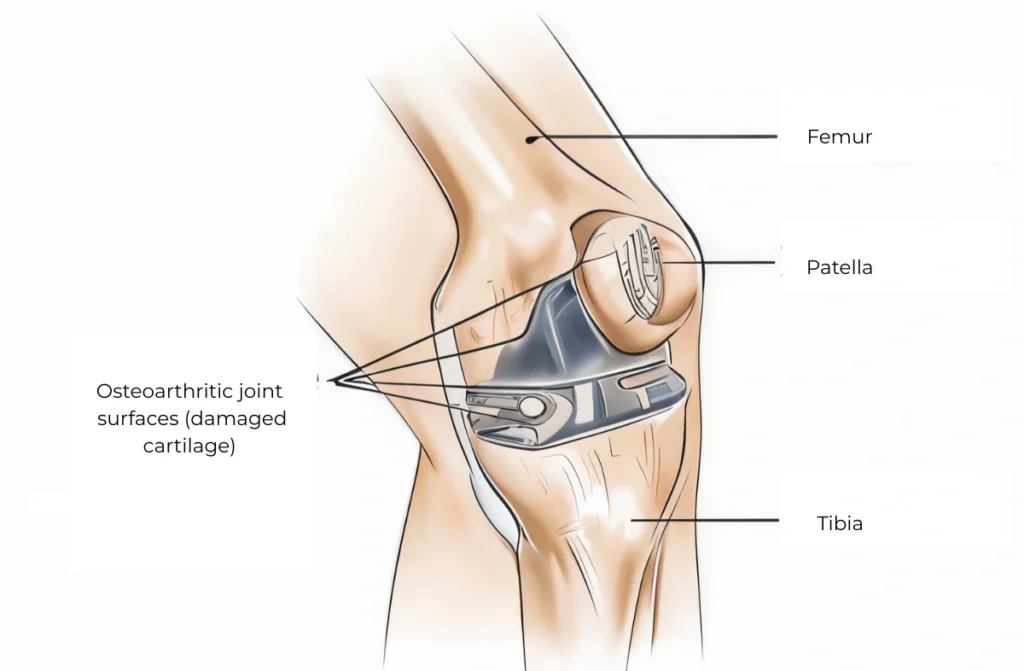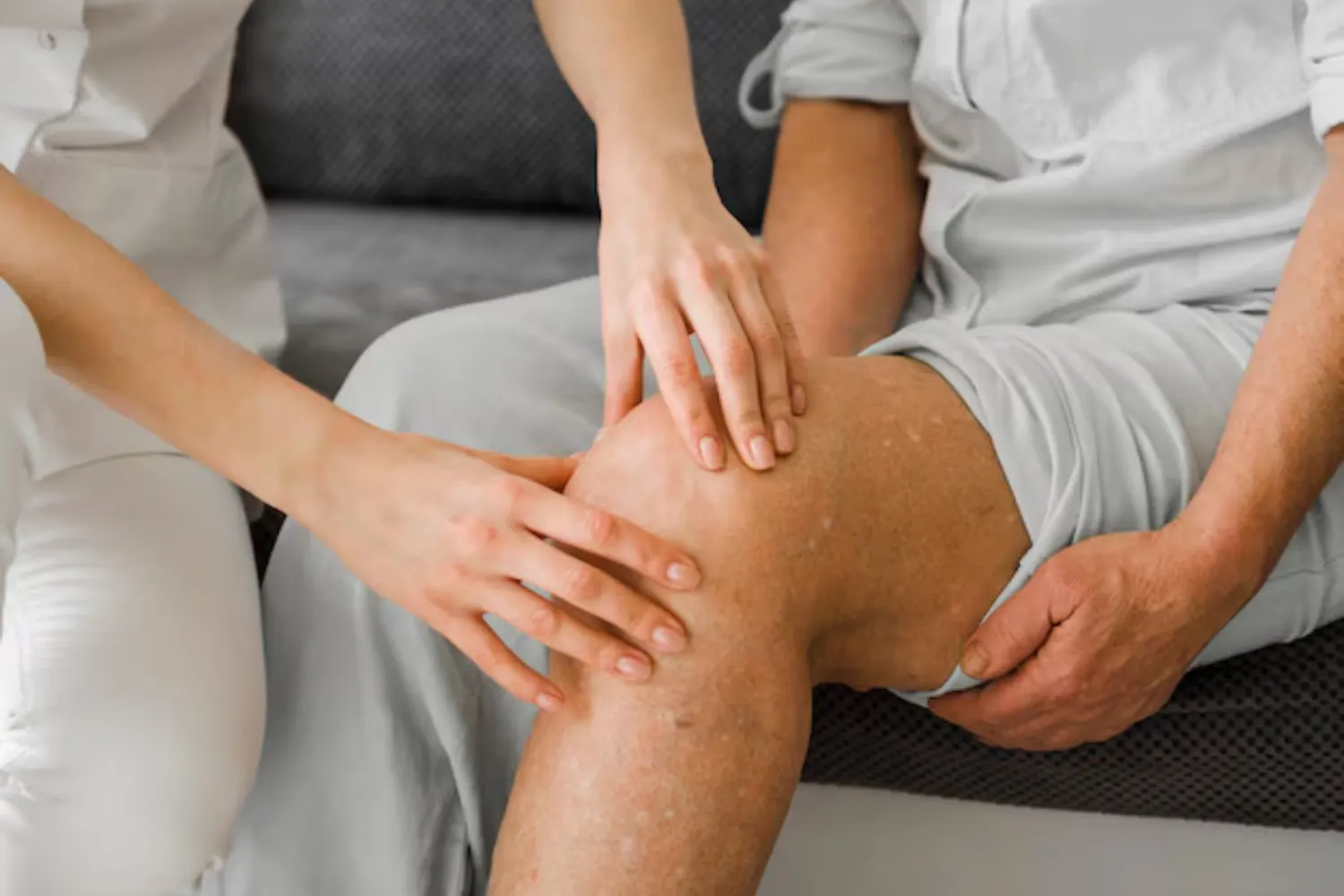Partial Knee Replacement in Chennai is a surgery that targets replacing only the damaged part of the knee, rather than the entire joint. This procedure is particularly beneficial for individuals with knee damage confined to just one specific area. It is less invasive than total knee replacement, leading to a faster recovery and quicker return to everyday activities. If you’re considering Partial Knee Replacement in Chennai, the city offers access to experienced surgeons and advanced medical facilities to help ensure a smooth and effective treatment.
What is Partial Knee Replacement?
Partial Knee Replacement in chennai, also known as Half Knee Replacement, is a procedure where only the affected portion of the knee joint is replaced. It’s a good option for people who have osteoarthritis that affects only one part of the knee. Unlike a total knee replacement, this surgery preserves as much of the natural knee as possible, leading to better overall function.
In Chennai, Partial Knee Replacement has become more common due to advancements in medical technology and the availability of skilled surgeons. The Partial Knee Replacement Surgery Cost in Chennai is also significantly lower compared to Western countries, making it a popular choice for both local and international patients seeking quality care at an affordable price.

Who Needs Partial Knee Replacement?
Partial Knee Replacement is ideal for:
- People with osteoarthritis in just one part of the knee.
- Those experiencing knee pain that doesn’t improve with other treatments like medication or physical therapy.
- Patients who have stable knee ligaments and minimal knee deformity.
- Individuals who want to maintain an active lifestyle but are limited by knee pain.
In India, many patients opt for Partial Knee Replacement due to the availability of expert surgeons and the procedure’s affordability. Discussing your options with a surgeon can help determine if this surgery is right for you.

The Surgical Process
Here’s how Partial Knee Replacement Surgery is done:
- Preparation: The patient is carefully positioned, and the knee area is sterilized to maintain a sterile environment and reduce the risk of infection.
- Anaesthesia: The patient is administered Anaesthesia, either regional (spinal or epidural) or general, to ensure they are comfortable and pain-free throughout the procedure.
- Incision: A precise incision is made over the knee, allowing access to the joint.
- Resection: The damaged or diseased portions of the knee joint are carefully removed, including the worn-out cartilage and any affected bone.
- Implant Placement: A metal and plastic implant is fitted into the prepared knee joint, replacing the removed tissue and restoring the joint’s function.
- Alignment: The implant is meticulously aligned to ensure the knee can move naturally and without pain, checking for proper fit and movement.
- Closure: The incision is closed with sutures or staples, and the area is dressed to protect the wound and promote healing.
Partial Knee Replacement surgery in Chennai typically takes about 1-2 hours. Patients can often begin walking with assistance on the same day or the next day. The quicker recovery is one of the key benefits of Partial Knee Replacement surgery in Chennai, making it an appealing option for those looking to return to their normal activities faster.
Recovery and Care After Surgery
After Partial Knee Replacement, proper care is essential for a smooth recovery. Here’s what to expect:
- Pain Management: Pain relief medications will be provided.
- Wound Care: Keep the surgical site clean to prevent infection.
- Physical Therapy: Start exercises early to regain knee strength and flexibility.
- Follow-up Visits: Regular check-ups are needed to monitor healing.
Most people can resume normal activities within 4-6 weeks after Partial Knee Replacement in Chennai. The recovery process is generally faster than with a total knee replacement, making Partial Knee Replacement in Chennai an attractive option for those looking to recover quickly and return to their daily routine.
Benefits and Risks
Benefits of Partial Knee Replacement:
- Less Invasive: Smaller cuts mean less scarring and quicker healing.
- Faster Recovery: Patients usually get back to their normal routine faster.
- Better Knee Function: Preserving the healthy parts of the knee allows for more natural movement.
- Fewer Complications: There’s a lower risk of infection and other complications compared to total knee replacement.
Risks to be aware of:
- Implant Longevity: The implant may wear out over time, especially in younger, more active patients.
- Progression of Arthritis: Arthritis could develop in other parts of the knee, possibly leading to further surgery.
- Infection: Although rare, there is a risk of infection after surgery.
- Blood Clots: There is a small risk of developing blood clots post-surgery.
Conclusion
Partial Knee Replacement treatment in Chennai is an effective option for those with knee damage limited to one area. It offers a balance between preserving the knee’s natural function and relieving pain. Partial Knee Replacement in chennai is performed by experienced surgeons at a fraction of the cost compared to other countries, making it an excellent choice for many seeking quality care and effective treatment.
Read also: Fractures Around the Knee Joints



